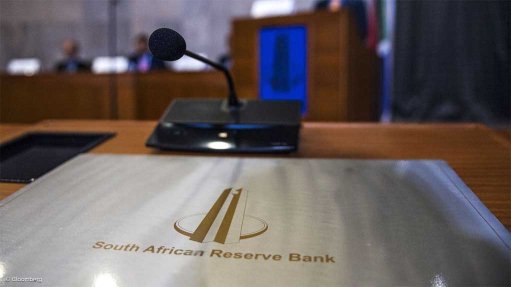Islamist militants a big nightmare for Sahel Alliance
In little over two years, military rule in West Africa’s three mineral-rich territories – Burkina Faso, Mali and Niger – has resulted in a sharp deterioration in the political, economic and security environment. Insecurity and uncertainty have now spread to infect the once stable, secure and profitable mining sector.
With now characteristic lack of forethought or tact, Burkina Faso’s junta leader, Captain Ibrahim Traoré, in a radio address to mark the second anniversary of the coup in early October, announced that the Burkinabe junta would start to withdraw mining permits. Within hours of the report appearing in Reuters, mining companies operating in Burkina Faso were in crisis management mode, racing into consultations with the Mines Ministry and calling their investors to insist that their permits were not in danger. Within days, West African Resources, Endeavour and Orezone confirmed that their permits were not in danger and that the threat was levelled at companies not compliant with the mining code. Sources within the industry insisted that the Mining Ministry still maintains control of the function of governing the industry. What was in fact being announced was a re-packaging of its “use it or lose it” policy.
Burkina Faso’s need to ensure that the gold sector continues unimpeded is such that it is clearing out companies that have not been able to meet their existing licence agreements. This is not new for the junta; in November 2023, the Council of Ministers withdrew four mining permits for reasons including lack of operations, failure to pay royalties and taxes, incomplete application to re-start operations, and stopping operations without commission approval. One such company, Russia’s Norgold – a company under US sanctions – shows that the junta’s need for production and royalties overrides the country’s newfound political and military allegiance with the Russian State.
Changes in the mining code are not exclusive to the military juntas, but a perennial issue and part and parcel of changing regimes, whether by military coup or ballot. The modern- day Eldorado is a stable mining regime that endures for the lifetime of a mine. The Democratic Republic of Congo (DRC) is currently seeking better terms and diversifying mining partners – notably away from China; Côte d’Ivoire has said it would like to change its code for better benefits, and Botswana has successfully concluded a new deal with DeBeers – only to see the parent company put it up for sale. Most recently, Mali increased the government’s stake in mining projects but the junta is also looking to increase its tax take and claims that one of the country’s oldest investors, Barrick, owes $512-million in outstanding taxes and dividends. Only in Niger has the junta taken a hard line when it revoked France-headquartered Orano’s uranium mining permit in July in a move that is seen as purely nationalist and political.
At the heart of the issue is the high cost of increased insecurity across the region after Burkina Faso, Mali and Niger ordered some 30 000 Western, donor-backed and multilateral troops that were providing counter- insurgency support to leave – and swapped them out for the support of a few thousand paid Russian troops made up of mercenaries and regular Russian army personnel.
The consequences of these coups, the junta’s deliberate shift away from regional body Ecowas, from the UN and former colonial power France, and a dramatically shrunken military presence have been catastrophic for Burkina Faso, Mali and Niger. Traoré has largely lost control of the countryside outside Ouagadougou and has been the target of at least two serious coup attempts. His praetorian guard of Russian military advisers was reportedly slimmed down in August after Ukraine’s armed forces invaded Russia’s Kursk Oblast region. About 100 men of the 200 to 300 deployed in the capital were sent home, leaving Traoré vulnerable. Locally, Russian troops are not having much success either; in October, Russian veterans’ organisations came to collect the bodies of 80 mercenaries that had been killed in July in a Tuareg separatist attack in northern Mali.
Of most concern are the advances that the Al-Qaeda-affiliated Jama’at Nusrat al-Islam wal-Muslimin (JNIM) has made in in all three countries – mainly through violent raid-and-retreat attacks that are virtually unopposed. In late August, JNIM claimed responsibility for a brutal attack in the central Burkinabe town of Barsalogho, where between 300 and 400 civilians and Burkinabe soldiers were killed. JNIM killed villagers indiscriminately, having apparently warned people not to cooperate with the army. Then, in mid-September, JNIM carried out an audacious raid on Bamako, Mali’s capital, attacking – and holding for several hours – the airport, key gendarmerie and military sites across the capital – including one close to where Russia’s mercenaries are based. Several police academy trainees were killed as the jihadists demonstrated they had more than a raid-and-retreat capability. Although local security sources report that Nigerien troops are more experienced than those in Mali and Burkina Faso, JNIM has gained ground there, too, announcing in mid-September that it had taken full control of an army barracks in the important south- western Tillaberi region.
JNIM’s advances represent a major blow to the three military juntas who all took power giving security reasons alongside neo- nationalistic reasons, and to the Alliance des États du Sahel (AES) – whose core function is a defence pact between the three countries to come to each other’s aid in case of attack. With JNIM within reach of two AES capitals, the AES’ failure to defend itself has raised alarm in the coastal Ecowas member countries from which AES has nominally split. In mid-October, Côte d’Ivoire’s President Alassane Ouattara and his Ghanaian counterpart, Nana Akufo-Addo, agreed to strengthen military cooperation and elsewhere border security has been stepped up.
Where will the chaos extend? Will there be contagion? The long-term threat of JNIM and its rag-tag allies in Tuareg separatists, minority ethnic militia movements and armed criminal has yet to be assessed. So far JNIM has been unable to take control and manage the regions it attacks and is unlikely to be able to form any kind of workable government, but unless the AES military fortunes improve, or it effects a dramatic reconciliation with Ecowas, that ambition may yet manifest itself.
Article Enquiry
Email Article
Save Article
Feedback
To advertise email advertising@creamermedia.co.za or click here
Press Office
Announcements
What's On
Subscribe to improve your user experience...
Option 1 (equivalent of R125 a month):
Receive a weekly copy of Creamer Media's Engineering News & Mining Weekly magazine
(print copy for those in South Africa and e-magazine for those outside of South Africa)
Receive daily email newsletters
Access to full search results
Access archive of magazine back copies
Access to Projects in Progress
Access to ONE Research Report of your choice in PDF format
Option 2 (equivalent of R375 a month):
All benefits from Option 1
PLUS
Access to Creamer Media's Research Channel Africa for ALL Research Reports, in PDF format, on various industrial and mining sectors
including Electricity; Water; Energy Transition; Hydrogen; Roads, Rail and Ports; Coal; Gold; Platinum; Battery Metals; etc.
Already a subscriber?
Forgotten your password?
Receive weekly copy of Creamer Media's Engineering News & Mining Weekly magazine (print copy for those in South Africa and e-magazine for those outside of South Africa)
➕
Recieve daily email newsletters
➕
Access to full search results
➕
Access archive of magazine back copies
➕
Access to Projects in Progress
➕
Access to ONE Research Report of your choice in PDF format
RESEARCH CHANNEL AFRICA
R4500 (equivalent of R375 a month)
SUBSCRIBEAll benefits from Option 1
➕
Access to Creamer Media's Research Channel Africa for ALL Research Reports on various industrial and mining sectors, in PDF format, including on:
Electricity
➕
Water
➕
Energy Transition
➕
Hydrogen
➕
Roads, Rail and Ports
➕
Coal
➕
Gold
➕
Platinum
➕
Battery Metals
➕
etc.
Receive all benefits from Option 1 or Option 2 delivered to numerous people at your company
➕
Multiple User names and Passwords for simultaneous log-ins
➕
Intranet integration access to all in your organisation


















